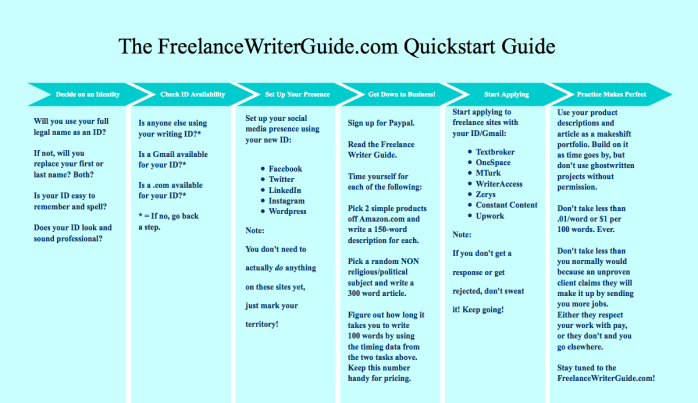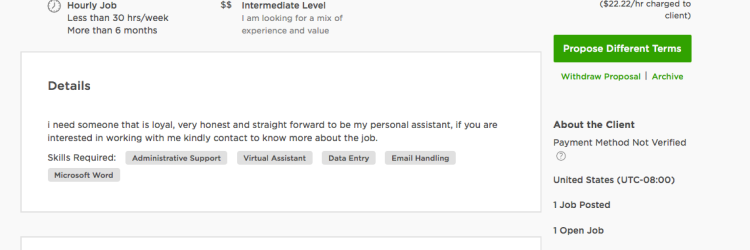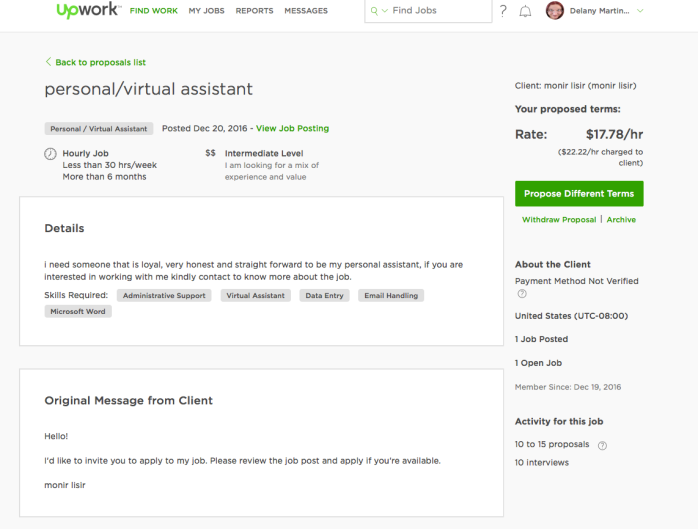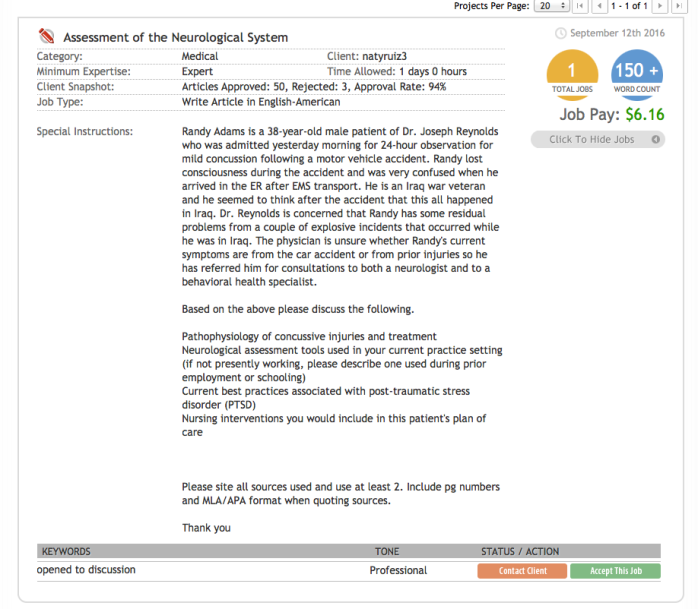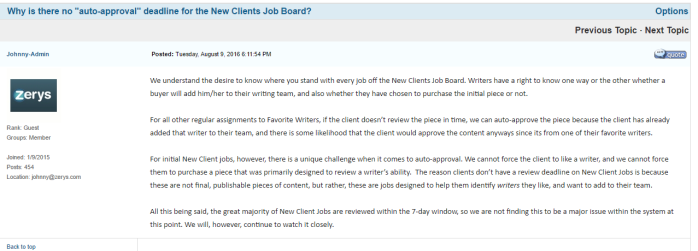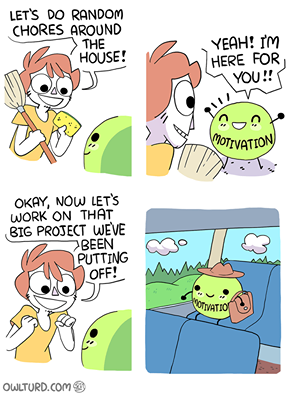Hello, intrepid fledgling (and fully grown) writers out there! It’s been a hot minute since I added content, so I figured I’d come back strong with one of my most valuable tips.
Now, I’m not going to tell a meandering story about how when I was a young girl growing up in the wilds of [state of residence], longing for [generic life goal], I….
Nope. This ain’t a recipe blog, so on to the good stuff!
First of all, for those that aren’t hip to this particular tip yet, you can search exact phrasing in a Google search. So, for example, if I were to search Freelance Writer Guide in Google, typed just like that….
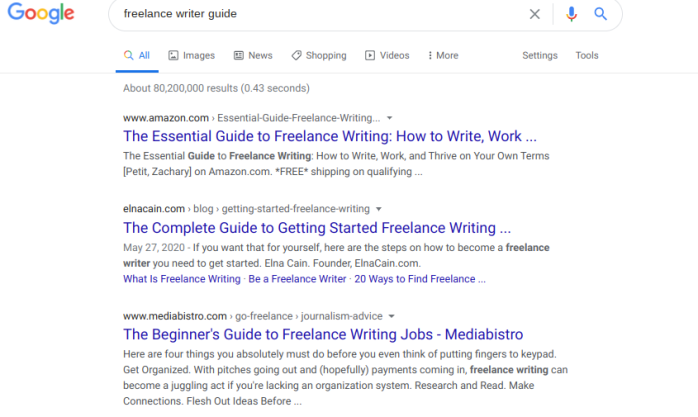
Hey…wait a minute…these aren’t me! Psh. Imposters!
…it returns all websites that have the words “Freelance” “Writer” and “Guide” in their content anywhere, not necessarily together in a row. That’s not super helpful when I’m looking for something specific, right?
If, alternately, I typed in “Freelance Writer Guide” – complete with those ” ” quotation marks around the words, watch what happens now….
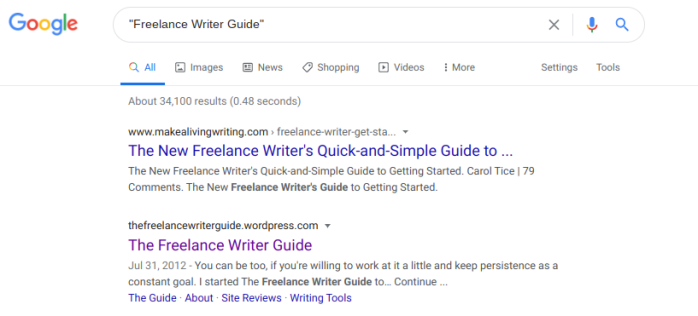
A little humbling I’m not number one, but hey – I’ve been busy!
….it only returns results where those three words showed up together. This little trick is going to come in handy in a minute.
Your Work is Yours Until You Are Compensated For It (Or Give it Away)
This isn’t a revolutionary concept, but it’s one a lot of creatives struggle with because we habitually devalue ourselves and our work. Now, let me be transparent about this – just because the presumptive legal rights may be in your corner doesn’t mean it’s easy to “win” against someone that’s stolen your work. Most freelancers are dealing with a one-off theft – e.g. “I wrote an article for X client, X client didn’t pay me, but published the article on their site anyway” as opposed to an ongoing issue with multiple projects. (There are definitely examples of ongoing clients stiffing writers or dragging their feet about paying invoices, though, don’t misunderstand me!)
Here’s the deal: When you create an original piece of writing work in anticipation of an agreed-upon payment from the client, and the client has made it clear that they no longer plan to pay after receiving it for review, that work remains yours and yours alone. If they then use that work by posting on their site, blog, etc. after making it clear they will not be paying, that amounts to theft. It’s just like ordering a meal at a restaurant, eating it, and then leaving without paying: they. are. stealing.
How Do I Know When My Writing Work is Being Stolen?
The first step to holding content thieves accountable is catching them red-handed in the act. Before moving on to the steps below, take a moment to search a sentence of your article in ” ” marks, as we discussed previously, to make sure it’s not currently in use. If it isn’t, continue on.
Google has a exceptionally handy feature, called Alerts, which we’ll use to turn on the proverbial security cameras. While most people use alerts to let them know when a new news story pops up about a subject of interest, we’re going to use it to potentially track your content in the wild.
- Step 1: Go to Google Alerts. (Make sure you’re signed into your Google/Gmail account first – if you don’t have one, close down your Netscape browser, hop out of 1992, walk on over and join the rest of us, eh?)
- Step 2: Pick a single sentence from the middle of any piece you worry might be stolen – scammers and spinners will sometimes try to (poorly) rewrite the beginning or end of a piece, but will usually leave the middle as-is.
- Step 3: Set up a Google Alert for that sentence, and….this is important…enclose it in ” ” marks as you save the alert. Remember earlier, when we discussed using quotation marks to return exact searches only? This is where we put that trick to use.
- Step 4: If any piece of content shows up on the Google-indexed web that uses your exact sentence, Google Alerts will send an automatic email to your Gmail account.
If someone has stolen your work and is attempting to use it, file a DMCA notice on your stolen content through Google to get the thief in hot water with the only search engine that really matters. Other options include contacting the hosting company supporting the website using your content, and, if your original contact with the client came through a freelance mill or for-hire site, notifying the appropriate help desk teams that the client has stolen content.
Note: Google Alerts can also be used to set up a search feature for legitimately-purchased content, if you’re ever curious about where your ghostwritten work ends up.
So there you have it! The (relatively) quick and dirty rundown on using Google Alerts to track your work, whether it’s potentially stolen or purchased outright.



